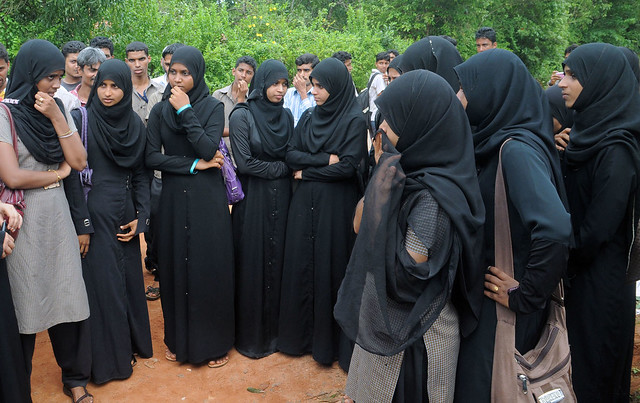By Kousar Fathima
Purdah is not new to Indian Muslims, it has always been a part of Muslim society but with passage of time and access to education, many Muslim women came out of purdah. The burqa, as it is popularly known, became widely synonymous with the uneducated and poor Muslim women. Burqa-clad women were commonly seen in Muslim ghettos or in the families of clergy. Most of the educated kept a safe distance from it, especially for the convent educated, it was a big no.

Girls protesting school’s decision to ban hijab in a Karnataka school in 2012. [file photo]
But off late, one would see a large number of educated and working girls opting purdah. But the difference is, now the burqa has taken a new avatar as HIJAB. Many blame the increased Arabisation for the change. Many call it a symbol of oppression and regression. The question is: are all these educated girls, some even successful professionals, regressive??
Interact with them and you will be surprised. For most, it represents freedom of choice. Their argument is, if one is free to go semi-nude, then the freedom to wear Hijab should also be there. They question the society which hails the size zero models but question their choice of dressing. It is their way of showing their middle finger to the hypocrisy. Excessive media highlight and criticism has turned them into ‘hijabi rebels’.
Not to forget that many are first generation Hijabis, some even discouraged by their own families. But these girls stick to their choice without any fear of discrimination or of been labelled as regressive.
(I) appreciate their courage and choice but then what is the problem? The problem is when some of these girls start lecturing and pressurising others who don’t wear Hijab. They should not forget that if you don’t want to be judged because of your Hijab, you should also not judge those who don’t wear it.
What you wear or don’t wear should not be a yardstick to measure one’s intelligence or piety. The emphasis should be on education, respect & dignity for all.
(Dr Kouser Fathima, a dental practitioner, has special interests in issues concerning women)

